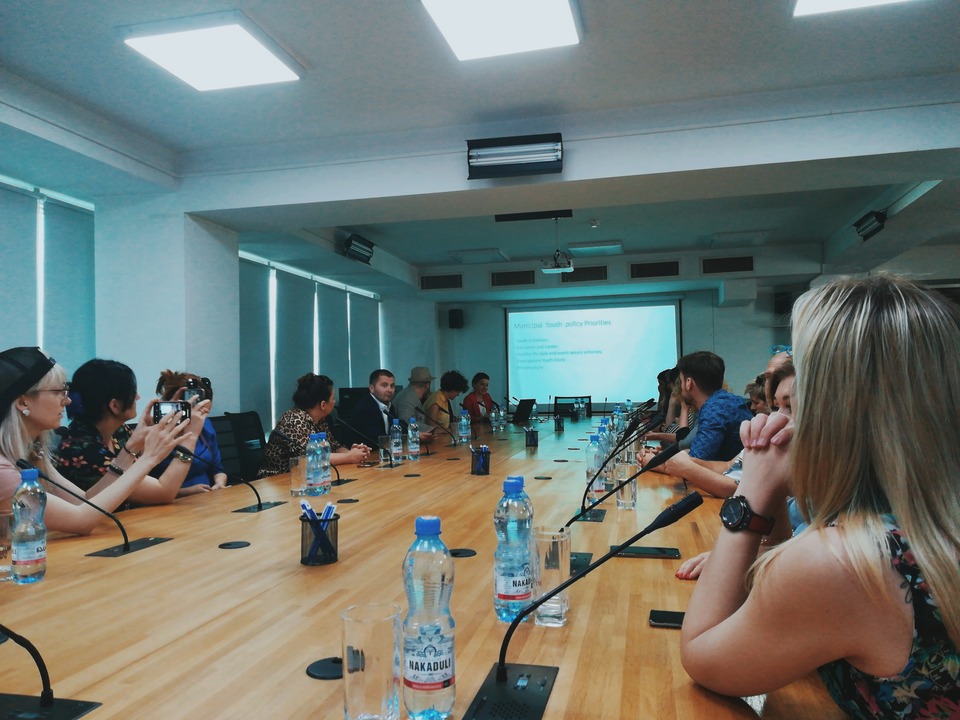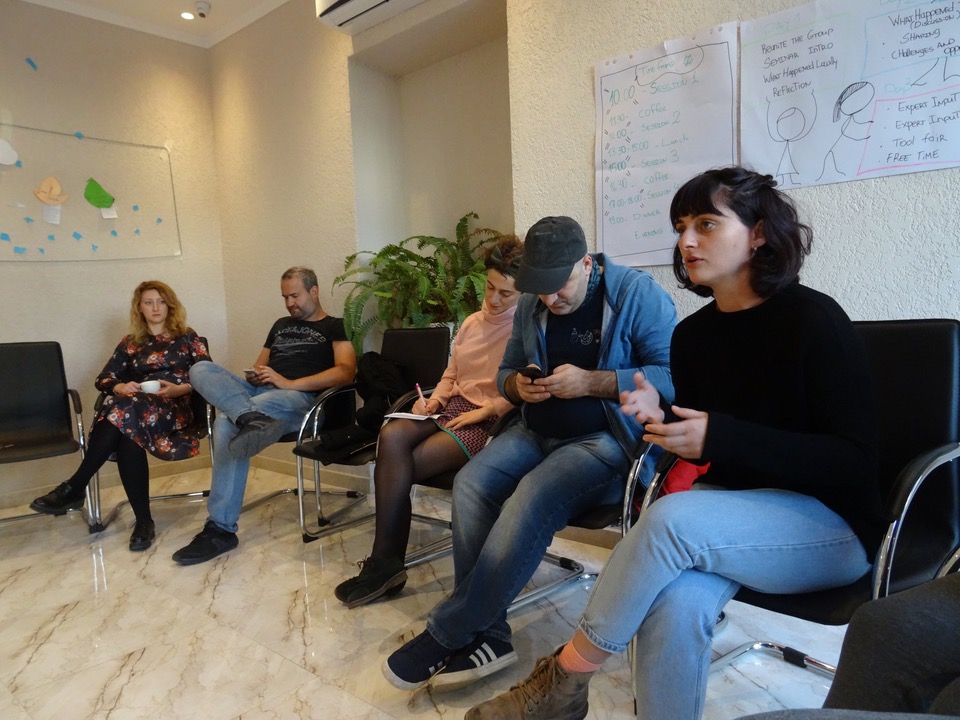
Aim:
The training course took place in Hualing Hotel in Tbilisi, Georgia. The main target group of the activity was the youth workers, youth leader’s public authority representatives directly working with the youth and in the youth field.
The main objectives of the training course were:
-
To establish a common understanding of youth work in Europe and partner countries;
-
To introduce various youth work structures
-
To map realities and challenges of the youth work field and youth center field in partner countries
-
To introduce and reflect on the European Commission’s competence model on youth workers
-
To introduce stages and types of youth participation in youth centers
-
To discuss the role of youth workers in the development of youth
-
To increase capacities of youth centers in partner countries
-
To increase the ability of involved youth workers from partner countries
Highlighted topics of the week were: Youth Work, Youth Participation and Youth policy. 
The training team arrived at the venue one day before, on 4th of May,, in order to meet for the final discussion of the agenda and coordination of facilitation. The first day of the training course mainly was dedicated to the introduction of the UPGRADE project and main activities planned on the different stages of the project. Furthermore, on the same day, participants got to know the objectives, activity programme and schedule for the upcoming week. Even more, the first day was dedicated to the process of team building in order to promote the group work and collaboration.
In the evening, participants were introduced with the competence framework of the youth work, which gave them possibility to go through each competence and to brainstorm how to use them for the self- reflection. 
On the second day, the basic principles and concepts of the youth work were presented, which gave possibility to brainstorm about what is youth work for each participant and how they are connected with it. Whole group agreed on main aspects of the youth work such as:
Building Relationships;
Personal, social and professional development;
Testing values and beliefs;
Participation;
Accepting and understanding other people;
Non formal learning;
All this encouraged the interesting discussions among the group members as it allowed them to explore what does each aspect means for them/why it is important and how youth work can be useful/productive for the other institutions.
After, participants had opportunity for personal experience sharing within the Living Library method. It ensured deeper understanding of different types of youth work through storytelling. Each participant had opportunity to put themselves in role of book and reader, which ensured that each participant shared their own youth work story.
The third day was dedicated to the practical experiences, as participants had possibility to visit the Phonichala Youth Center, which is located in one of the suburbs of Tbilisi.
Youth Center has approximately 120 youth aged 14 to 29. Also, centers has couple of children from
age 6. The main activities organized are:
Drawing.
English language.
IT and programming classes.
Chess.
Handmade and craft classes.
Engineering.
In order to get more information about the youth work development in Georgia, participants were invited for the meeting with the depute of the city mayor and Sport, Culture, Youth and sport department of Tbilisi. The presentation included the practical and visual information about the activities organized for youth by the Tbilisi City Hall.
The following days, were dedicated more on brainstorming on core principles of the youth work. Knowing about the core principles opened the discussions and participants brainstormed and came up with the cases from their own communities how the core principles are implemented in their realities. This gave possibility to draw the youth work implementation realities in each country, which made possible at first to visualize it and then compare the various realities. Even more, participants could choose principles they are lacking/need in order to improve the quality of the youth work. 
The second part of the training course focused more on planning programmes for the next phase of the project: Fellowships to Sweden, Estonia and Poland and what type of practical information participants would like to go through within the next training course in July, in Poland.

